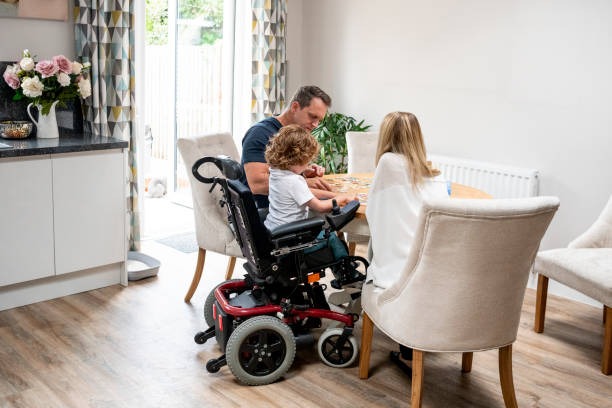Building Resilience and Empowering Individuals with Disabilities
This article explores strategies for building resilience and fostering a sense of empowerment among individuals with disabilities. It highlights the importance of self-advocacy, promoting independence, and fostering social connections to enhance their overall well-being.
HEALTH AND WELLNESS
Sherry Jones
1/4/20242 min read


Individuals with disabilities face unique challenges in their everyday lives. From physical limitations to societal barriers, they often encounter obstacles that can affect their well-being and overall quality of life. However, by building resilience and fostering a sense of empowerment, individuals with disabilities can overcome these challenges and lead fulfilling lives. This article explores strategies for building resilience and empowering individuals with disabilities.
Self-Advocacy
Self-advocacy is a crucial skill for individuals with disabilities. It involves speaking up for oneself, asserting one's rights, and making informed decisions. By developing self-advocacy skills, individuals with disabilities can actively participate in decisions that affect their lives and ensure that their needs are met. This can be achieved through education, support groups, and access to resources that provide information about their rights and available services.
Promoting Independence
Promoting independence is another important aspect of empowering individuals with disabilities. It involves providing the necessary support and accommodations to enable them to live as independently as possible. This can include assistive devices, accessible environments, and training in daily living skills. By promoting independence, individuals with disabilities can gain a sense of control over their lives and develop the confidence to overcome challenges.
Fostering Social Connections
Social connections play a vital role in building resilience and empowering individuals with disabilities. By fostering social connections, individuals with disabilities can develop a support network that provides emotional support, encouragement, and opportunities for social interaction. This can be achieved through participation in community activities, joining support groups, and utilizing online platforms that connect individuals with similar interests and experiences.
Access to Education and Employment
Access to education and employment is essential for empowering individuals with disabilities. By providing equal opportunities for education and employment, individuals with disabilities can develop their skills, pursue their interests, and contribute to society. This can be achieved through inclusive education policies, reasonable accommodations in the workplace, and initiatives that promote diversity and inclusion.
Conclusion
Building resilience and empowering individuals with disabilities is crucial for enhancing their overall well-being and quality of life. By promoting self-advocacy, independence, fostering social connections, and ensuring access to education and employment, we can create a more inclusive society that values and supports individuals with disabilities. Let us work together to break down barriers and create a world where everyone has the opportunity to thrive.
Contact
Email: contact@beyondlabelreads.com
Socials
WhatsApp: 07840005489
